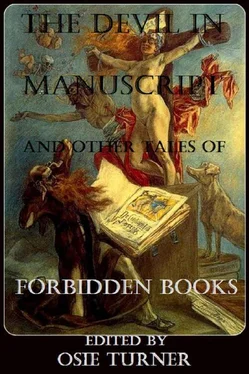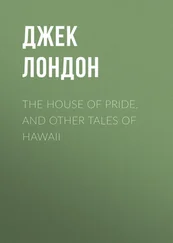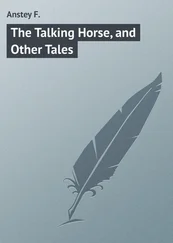“When do you go up for your final examinations?”
“Next month—thanks to Martin. If it weren’t for him, I’d probably be hitting the high life yet. But one night he collared me, dragged me over to his tenement, and introduced me to a bleary-eyed old chap who was fighting imaginary snakes. What a sight he was!” Paul passed his hands across his eyes as though to shut out a picture. “He had been a gentleman, too, in his day—a Harvard man, I believe. Anyone could tell he wasn’t an ordinary drunk by his ravings He quoted a lot of poetry to keep off the snakes. Dante’s Inferno I believe it was. Well, it cured me.”
“I’m glad of that. But you mustn’t give Martin all the credit. A great deal belongs to you.”
“Not a bit,” he answered with a rueful shake of the head. “Martin scared me into it. But what are you going to do now, Charley? Are you going to paint portraits?”
“Yes, if I can get any sitters. I’ve got to look around a bit first. You don’t know any wealthy beauty who wants to have her face immortalized?”
Paul rose yawning. “No,” he answered. “But if I did, I don’t think I’d hand her over to you until I had discovered if there weren’t some legitimate, legal way of separating her from her cash.”
The next day I began writing letters to former acquaintances with the hope that they might know of someone who was anxious to have a portrait painted by a pupil of the famous Emile Verone. I soon learned that I could hope for little from this source. Most of my college friends were so busy or so absent-minded that they failed to answer my note; and the few replies which I did receive were far from encouraging. Evidently the world at large was not at all interested in furthering the future of an aspiring young genius.
The pile of bills in my mother’s desk grew higher day by day. I no longer dared to open them. My spirits were at very low ebb on the morning when I received a note from Wilbur Huntington which gave me a ray of hope. It ran as follows:
Dear Charley: The mater wants her portrait painted. She’s not much on looks, but she has a well lined pocketbook. I have boosted you to the skies. She now thinks that you are a Van Dyke, a Whistler, and a Sargent, all in one. Call on her next Monday and make good. As ever, Wilbur.
When I finished this hope-inspiring epistle, I uttered a whoop of joy which brought Paul out on the veranda in no time. “I’ve struck it at last,” I cried.
“What’s the matter?” he asked. “Have you found a half-dollar or something?”
“I’ve found a good many half dollars,” I answered gleefully. “I’ve been asked to do a portrait of Mrs. Huntington—you know, Wilbur Huntington’s mother. It’s the chance of a lifetime. If I make good, she’ll recommend me to her society friends and it will be smooth sailing after that.”
“Good man!” cried Paul. “You’ve struck it all right. But look here. I’ve got another surprise for you.”
“What is it?” I asked.
“It’s a story by Martin,” he answered. “They’re featuring it this month in the Footstool Magazine. Just look it over while I run downtown. I want your opinion of it. It’s the first piece of work he’s had published.”
After Paul had gone, I opened the magazine. On the first page was an illustration by Martin himself. I recognized it instantly. It was a miniature of that first painting I had seen of his—that vivid conception of the girl lying dead in the snow. It had been improved by a few deft strokes of the brush so that now it was a veritable masterpiece of mystery. For a long moment I gazed at it while the well-remembered feeling of intense cold passed through my frame. At last, with an effort, I turned the page. “The Murder of Mary Mortimer,” was the title of the story.
“Some melodramatic nonsense, no doubt,” I told myself and began to read.
But from the first page I knew that I was wrongs—entirely wrong. I could not blind myself to the truth. If the man’s illustration was gruesome and yet masterful, the man’s story was diabolic and yet a classic.
As I read it, I felt the same sensations stirring in me that the deformed idiot in Martin’s story felt when the voice whispered in his ear: “You are losing her! Is it not better to have her dead?” And when he is driven by this voice to strike her down, when she falls like a red ruin in the snow, I saw that scene as though I were standing where the dark shadows of nightfall were closing in.
“I see you like my story,” said a familiar voice.
I looked up with a start and encountered Martin’s cold grey eyes. His thin lips were curling up at the corners in their wonted cat-like grimace. For a moment I experienced the unpleasant nervous shock of a somnambulist who is suddenly awakened.
“A remarkable story!” I said at length in a rather unsteady tone. “The most startlingly vivid piece of fiction I ever read! Surely you must have imagination to write like that?”
“On the contrary, not a grain of it. As I told you once before, there are countless themes drifting about and a man has only to get off the beaten path to find them. Without exaggeration I can say that I have done so.”
“Your story proves that,” I assented. “But where did you get the idea?”
Again his lips writhed into an unpleasant smile. “That would be revealing my little secret,” he murmured, wagging his head reprovingly at me. “A wise angler never tells where he caught his last trout.”
“Your story is founded on truth?” I asked.
“It would seem so. A man without imagination cannot lie artistically.”
“But I don’t believe that even a weak-minded person could be turned into a murderer by mental suggestion. It’s preposterous! That’s the weak spot in your story, Martin.”
He threw back his head and burst into a laugh—if you could call a series of sounds so inhuman a laugh. It was as hoarse and guttural as the cawing of a crow. At last he broke off and regarded me solemnly.
“Smithers,” he said, “you amuse me. In fact, you are the one man in the world who can make me laugh.”
By this time I was thoroughly aroused. This man’s colossal egotism was unendurable. “You may laugh as much as you please,” I cried, “but that isn’t answering my criticism of your story. I repeat that mental suggestion cannot form even a weak-minded person into a murderer. Your tale doesn’t ring true to life.”
“Perhaps so,” he murmured. “I thought that it could be managed by mental suggestion—under the right circumstances, of course. But where is Paul this morning?”
“He went downtown,” I said brusquely. “He probably won’t be back for an hour or two.”
“Well, I’ll not wait. Tell him I called, won’t you? Goodbye, Smithers.”
For some time I sat watching his tall, lean figure receding in the distance. Finally I rose, and, moved by a sudden fit of childish irritation, picked up the magazine, entered the library, and deposited it carefully on a bed of glowing coals.
“It’s better out of the way,” I told myself. I never knew until years later how truly I had spoken.
It was not long before Martin’s prophecy about my career came true. Spurred on by adversity and a natural desire to please I soon became one of those flourishing society portrait painters who fatten on the vanity of women. Mrs. Huntington’s picture did not suit her until I had touched it up to such an extent that her own son could not recognize any likeness. But when I had beautified her to her heart’s content, she became enthusiastic and recommended me to all her wealthy friends. That was the beginning. Soon I had all I could do to fill the many orders which rained down on me. My work became the vogue—I was no longer a man but a fashion.
Читать дальше












